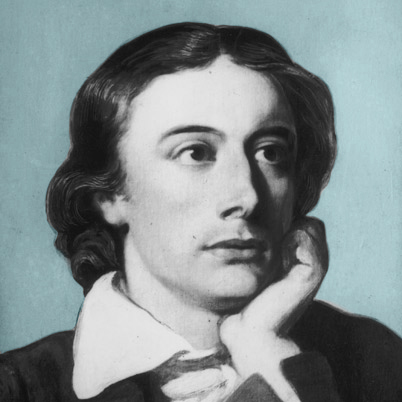
Below, John Keats writes to his close friend, the English poet John Hamilton Reynolds, with words of encouragement regarding Reynolds’ new love for an unnamed young woman. “But I conjure you to think at Present of nothing but pleasure,” enjoins Keats. “[G]orge the honey of life.”
[Hampstead, about September 22, 1818.]
My dear Reynolds—Believe me I have rather rejoiced at your happiness than fretted at your silence. Indeed I am grieved on your account that I am not at the same time happy—But I conjure you to think at Present of nothing but pleasure—“Gather the rose, etc.”—gorge the honey of life. I pity you as much that it cannot last for ever, as I do myself now drinking bitters. Give yourself up to it—you cannot help it—and I have a Consolation in thinking so. I never was in love—Yet the voice and shape of a Woman has haunted me these two days—at such a time, when the relief, the feverous relief of Poetry seems a much less crime—This morning Poetry has conquered—I have relapsed into those abstractions which are my only life—I feel escaped from a new strange and threatening sorrow—And I am thankful for it—There is an awful warmth about my heart like a load of Immortality.
For more adornment, a full thousand years;
She took their cream of Beauty’s fairest dyes,
And shap’d and tinted her above all Peers:
Meanwhile Love kept her dearly with his wings,
And underneath their shadow fill’d her eyes
With such a richness that the cloudy Kings
Of high Olympus utter’d slavish sighs.
When from the Heavens I saw her first descend,
My heart took fire, and only burning pains,
They were my pleasures—they my Life’s sad end;
Love pour’d her beauty into my warm veins.
* * * * * * * * * *
I had not the original by me when I wrote it, and did not recollect the purport of the last lines.
I should have seen Rice ere this—but I am confined by Sawrey’s mandate in the house now, and have as yet only gone out in fear of the damp night.—You know what an undangerous matter it is. I shall soon be quite recovered—Your offer I shall remember as though it had even now taken place in fact—I think it cannot be. Tom is not up yet—I cannot say he is better. I have not heard from George.
John Keats.


